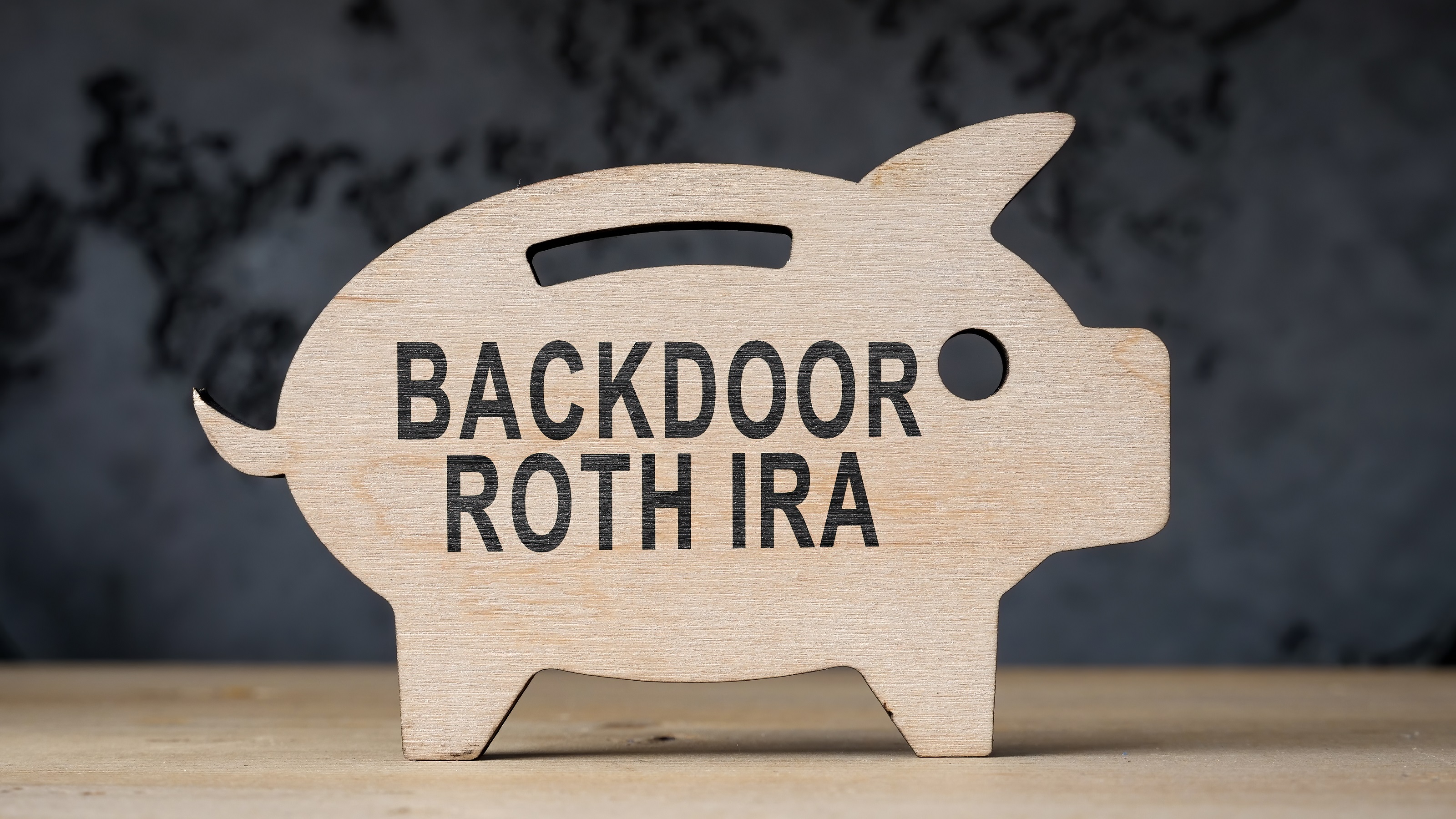A Kiplinger Empower Poll: How Retirement Savers Are Doing
We’re working hard to get back on track, according to this new poll.

Profit and prosper with the best of Kiplinger's advice on investing, taxes, retirement, personal finance and much more. Delivered daily. Enter your email in the box and click Sign Me Up.
You are now subscribed
Your newsletter sign-up was successful
Want to add more newsletters?

Delivered daily
Kiplinger Today
Profit and prosper with the best of Kiplinger's advice on investing, taxes, retirement, personal finance and much more delivered daily. Smart money moves start here.

Sent five days a week
Kiplinger A Step Ahead
Get practical help to make better financial decisions in your everyday life, from spending to savings on top deals.

Delivered daily
Kiplinger Closing Bell
Get today's biggest financial and investing headlines delivered to your inbox every day the U.S. stock market is open.

Sent twice a week
Kiplinger Adviser Intel
Financial pros across the country share best practices and fresh tactics to preserve and grow your wealth.

Delivered weekly
Kiplinger Tax Tips
Trim your federal and state tax bills with practical tax-planning and tax-cutting strategies.

Sent twice a week
Kiplinger Retirement Tips
Your twice-a-week guide to planning and enjoying a financially secure and richly rewarding retirement

Sent bimonthly.
Kiplinger Adviser Angle
Insights for advisers, wealth managers and other financial professionals.

Sent twice a week
Kiplinger Investing Weekly
Your twice-a-week roundup of promising stocks, funds, companies and industries you should consider, ones you should avoid, and why.

Sent weekly for six weeks
Kiplinger Invest for Retirement
Your step-by-step six-part series on how to invest for retirement, from devising a successful strategy to exactly which investments to choose.
An overwhelming majority of retirement savers believe they are on track to retire comfortably, according to a new national poll conducted by Kiplinger in partnership with money management firm Empower. Some 40% of savers are very confident that they’re on track for a comfortable retirement, and 44% are somewhat confident. The poll, conducted in November, surveyed individuals with at least $50,000 in retirement savings.
Most survey participants are saving diligently. Nearly 60% are stashing 10% or more of their income toward retirement, and about 30% of respondents are saving at least 15% of income. And 14% are supersavers, putting aside 20% or more of their income toward retirement. The vast majority (81%) say they have a workplace retirement plan, such as a 401(k), 403(b), 457, SEP IRA or solo 401(k). In addition, more than one-third (35%) have a traditional IRA, and 25% own a Roth IRA.
Among those with a workplace savings plan, about 80% have a plan that offers a matching contribution, and nearly 90% of those workers contribute enough to get the full match. The median match is 4% of pay. Nearly six in 10 (59%) say their employer offers a Roth 401(k) or other Roth option in their retirement lineup, and 74% of those workers are currently contributing to that option. Millennials (78%) and Gen Xers (73%) were more likely than baby boomers (61%) to contribute to the Roth.
From just $107.88 $24.99 for Kiplinger Personal Finance
Become a smarter, better informed investor. Subscribe from just $107.88 $24.99, plus get up to 4 Special Issues

Sign up for Kiplinger’s Free Newsletters
Profit and prosper with the best of expert advice on investing, taxes, retirement, personal finance and more - straight to your e-mail.
Profit and prosper with the best of expert advice - straight to your e-mail.
A desire to do more. Even so, more than one-third of respondents (36%) say they would like to be saving 20% or more. Not surprisingly, older workers are saving more: The median savings rate for baby boomers is 14%, and about half say they would like to be saving 20% or more.
The median amount people think they will need in retirement is $540,846. But almost one-third (31%) of respondents expect to need a nest egg of $1 million or more. The closer they are to retirement, the more likely they are to say they are going to need a larger nest egg and more time in the workforce to retire comfortably.
The pandemic created a few obstacles. Some 43% report experiencing a financial setback. Of those, more than half say they haven’t yet recovered from the setback. During the pandemic, almost one in five (19%) took out a loan from their workplace retirement plan. Among those, the median amount borrowed was $30,231. Those who borrowed from their workplace savings used the funds for living expenses (61%), medical bills (51%) and home repairs (47%). Here are the survey highlights:
How confident are you that you will have enough savings to retire comfortably?
- Very confident: 40%
- Not confident: 16%
- Somewhat confident: 44%
How much of your annual income are you currently saving for retirement?
- Less than 5%: 14%
- 5% to 9%: 24%
- 10% to 14%: 27%
- 15% to 19%: 16%
- 20% or more: 14%
- Not sure: 5%
Does your employer offer a matching contribution to your workplace retirement plan?
- Yes: 80%
- No: 15%
- Not sure: 5%
If your employer offers a matching contribution for your workplace retirement plan, do you contribute enough to get the full amount?*
- Yes: 89%
- No: 7%
- Not sure: 5%
Does your employer offer a Roth 401(k) or another Roth option in its retirement plan?
- Yes: 59%
- No: 30%
- Not sure: 11%
Are you currently contributing to a Roth option in your workplace retirement plan?
- Yes: 74%
- No: 23%
- Not sure: 3%
If given the option to invest in cryptocurrency in your workplace retirement plan, how likely would you be to do so?*
- Very likely: 37%
- Somewhat likely: 33%
- Not likely: 29%
If given the option to invest in a fund with an ESG (environmental, social and governance) focus in your workplace retirement plan, how likely would you be to do so?
- Very likely: 42%
- Somewhat likely: 41%
- Not likely: 17%
Which of the following situations are likely to affect your expected retirement date?
- Becoming eligible for Social Security: 34%
- Experiencing a change in job status: 32%
- Paying off my mortgage: 31%
- Paying off other debt: 30%
- Reaching a specific savings goal: 29%
- Receiving an early-retirement bonus offer from my employer: 26%
- Syncing retirement with a partner: 25%
- Finish paying for my children’s college education: 12%
What changes have you made in anticipation that today’s low tax rates are set to expire by the end of 2025 or sooner?†
- I’ve been investing in a Roth IRA: 35%
- I’ve been converting a traditional IRA or other tax-deferred retirement account to a Roth IRA: 24%
- I’ve been investing in municipal bonds: 17%
- I’ve made no changes: 50%
Do you think that climate change will affect where you choose to live in retirement?
- Yes: 42%
- No: 39%
- Not sure: 19%
Methodology
The survey included 997 respondents ages 25 to 75 with at least $50,000 in retirement savings. We excluded those who were partially or fully retired. Respondents were equally split between males and females. The median age was 43. Median household income before taxes in 2021 was $95,105. Median retirement savings was $122,725, and median household net worth, excluding primary residence, was $232,854. The poll was conducted November 9 to 16, 2021. The margin of error is +/- 3.1%.
*Figures do not add up to 100% due to rounding.
†Respondents were asked to select all that apply.
Profit and prosper with the best of Kiplinger's advice on investing, taxes, retirement, personal finance and much more. Delivered daily. Enter your email in the box and click Sign Me Up.
-
 Nasdaq Leads a Rocky Risk-On Rally: Stock Market Today
Nasdaq Leads a Rocky Risk-On Rally: Stock Market TodayAnother worrying bout of late-session weakness couldn't take down the main equity indexes on Wednesday.
-
 Quiz: Do You Know How to Avoid the "Medigap Trap?"
Quiz: Do You Know How to Avoid the "Medigap Trap?"Quiz Test your basic knowledge of the "Medigap Trap" in our quick quiz.
-
 5 Top Tax-Efficient Mutual Funds for Smarter Investing
5 Top Tax-Efficient Mutual Funds for Smarter InvestingMutual funds are many things, but "tax-friendly" usually isn't one of them. These are the exceptions.
-
 10 Retirement Tax Plan Moves to Make Before December 31
10 Retirement Tax Plan Moves to Make Before December 31Retirement Taxes Proactively reviewing your health coverage, RMDs and IRAs can lower retirement taxes in 2025 and 2026. Here’s how.
-
 The Rubber Duck Rule of Retirement Tax Planning
The Rubber Duck Rule of Retirement Tax PlanningRetirement Taxes How can you identify gaps and hidden assumptions in your tax plan for retirement? The solution may be stranger than you think.
-
 What Does Medicare Not Cover? Eight Things You Should Know
What Does Medicare Not Cover? Eight Things You Should KnowMedicare Part A and Part B leave gaps in your healthcare coverage. But Medicare Advantage has problems, too.
-
 QCD Limit, Rules and How to Lower Your 2026 Taxable Income
QCD Limit, Rules and How to Lower Your 2026 Taxable IncomeTax Breaks A QCD can reduce your tax bill in retirement while meeting charitable giving goals. Here’s how.
-
 Estate Planning Checklist: 13 Smart Moves
Estate Planning Checklist: 13 Smart Movesretirement Follow this estate planning checklist for you (and your heirs) to hold on to more of your hard-earned money.
-
 Backdoor Roth IRAs: Good for Wealthy Retirees?
Backdoor Roth IRAs: Good for Wealthy Retirees?Financial Planning A backdoor Roth IRA is a tax loophole that enables wealthier individuals to earn tax-free income. But it's complicated.
-
 Buying Annuities in Your 401(k)
Buying Annuities in Your 401(k)Financial Planning More plans are offering annuities that could provide income in retirement. Here’s what you need to know.
-
 Smart Strategies for Couples Who Run a Business Together
Smart Strategies for Couples Who Run a Business TogetherFinancial Planning Starting an enterprise with a spouse requires balancing two partnerships: the marriage and the business. And the stakes are never higher.